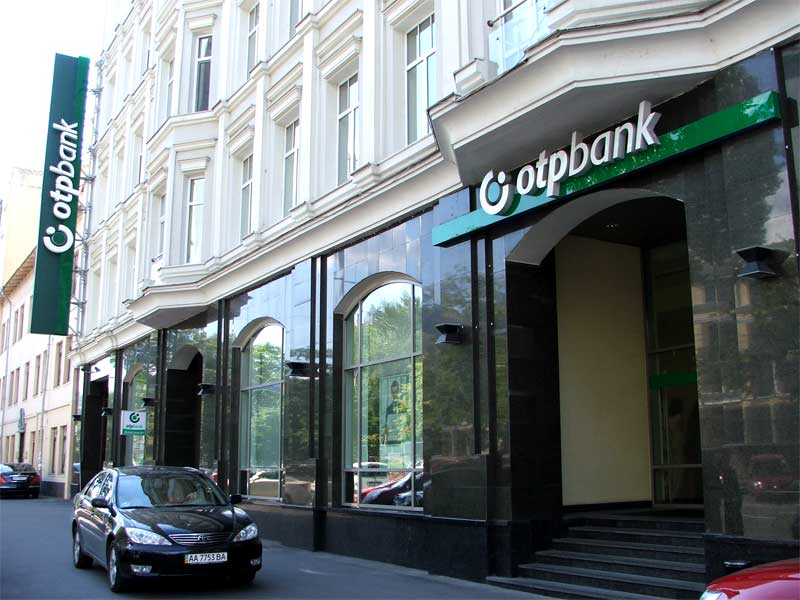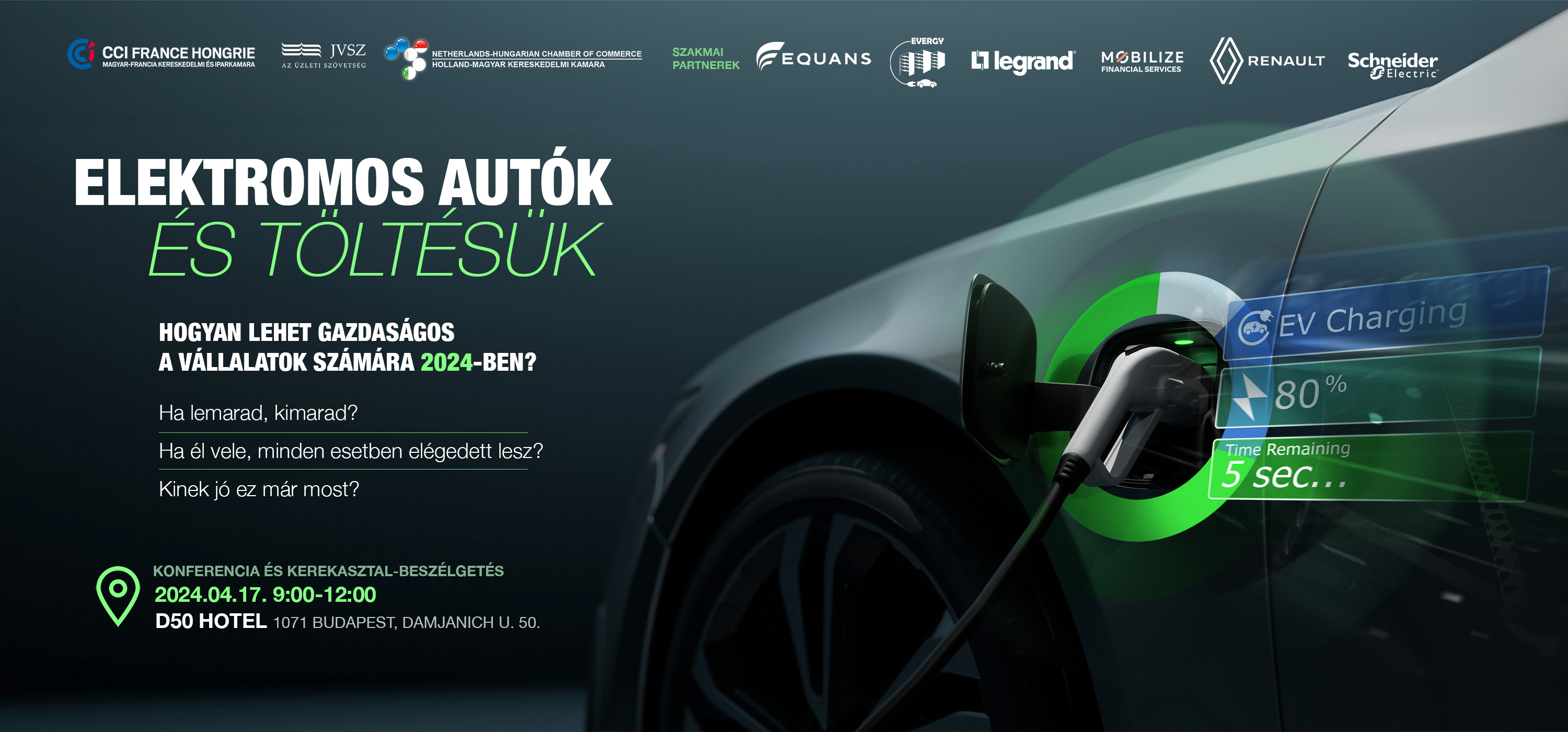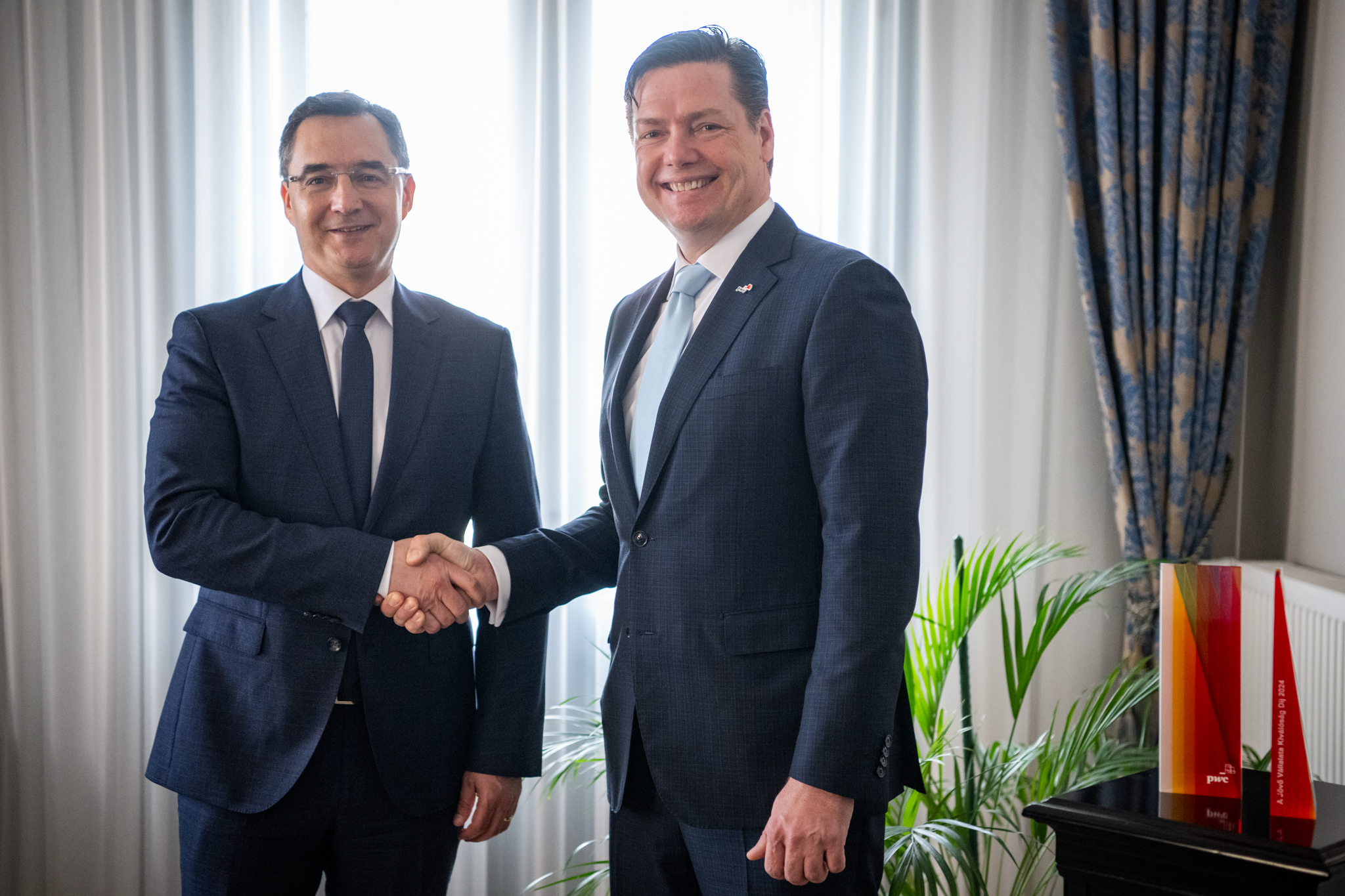Advancements in Battery Tech Propel Hungary’s Green Transition

Ákos Nagy (with mic) speaks at a round table discussion at the third Hungarian Battery Day.
The third Hungarian Battery Day, organized by the Hungarian Battery Association and White Paper Consulting, gathered business magnates and political architects to deliberate on the prospects and hurdles of the battery sector in Hungary and Europe.
The conference, held on Oct. 26 at the Hotel Marriott Budapest and for which the Budapest Business Journal was a media sponsor, was packed with insightful deliberations among business leaders and policymakers, focusing on the emerging trends and challenges in the battery industry in Hungary and across Europe. The event fostered a conducive environment for networking and exchanging ideas, underlining the importance of the battery sector in steering the green energy transition.
State Secretary for Industrial Policy and Technology Gergely Fábián of the Hungarian Ministry of Economic Development, opened the conference.
“Electrification is one of the looming challenges ahead. As electric vehicles continue to conquer the roads, the appetite for batteries is growing. Batteries are not only the lynchpin of the transportation metamorphosis but will also become indispensable in the industrial and domestic sectors,” Fábián said.
István Joó, CEO of the Hungarian Investment Promotion Agency, emphasized the blossoming of the Hungarian battery market.
“Hungary is serving as a hub for Eastern and Western companies, making it a key player in the transformation of the automotive sector. Already the world’s fourth largest battery manufacturer, the country is poised to maintain its position in this rapidly expanding global industry, fueled by new investments,” Joó said.
He also revealed that a HUF 60 billion program for the electrification of transport is on the government’s immediate agenda.
The Director of the European Commission’s Directorate General for Growth (DG Grow), Joaquim Nunes de Almeida, echoed similar sentiments.
“The high-tech battery sector is a cardinal technology for the green energy transition. The European Union, through the newly enacted Battery Regulation and other legislative efforts such as the Net Zero Industry Act and the Critical Raw Materials Act, is trying to attract leading industry players to choose Europe as their industrial investment hub and participate in the emergence of a European battery industry aligned with sustainability and circular economy principles,” de Almeida explained.
.jpg)
The Batteries Regulation: Secondary Legislation roundtable.
Significant Investment
In a significant recent investment move, Chinese manufacturer Catl is building its second European battery plant in Debrecen, Hungary.
“Our goal is to use renewable energy sources, sustainable production and logistics in all our facilities,” said Jason Chen, general manager of operations at Catl Europe.
“We are proud to have achieved carbon neutrality at four battery plants, and we are committed to replicating these global practices in Debrecen. This Hungarian venture will strengthen our ability to meet European market demands, expand our global manufacturing network and accelerate e-mobility and energy transition in Europe,” he added.
Thore Sekkenes, program director of the European Battery Alliance, assessed the global trends in the battery sector.
“The introduction of the Inflation Reduction Act by the United States last year has significantly strained the European Union’s competitive position. Nonetheless, the EU has responded promptly by adopting a number of favorable new regulations. The United States has emerged as a leader in this area, setting a commendable precedent. Cross-border cooperation is crucial for success in this endeavor,” Sekkenes emphasized.
In analyzing the impact of the IRA on the European market, Bob L. Galyen, SAE international fellow and chairman of the Battery Standards Steering Committee, highlighted the potential impact of China’s recent decree to restrict graphite exports to the U.S. battery industry, given China’s dominance in graphite production and processing.
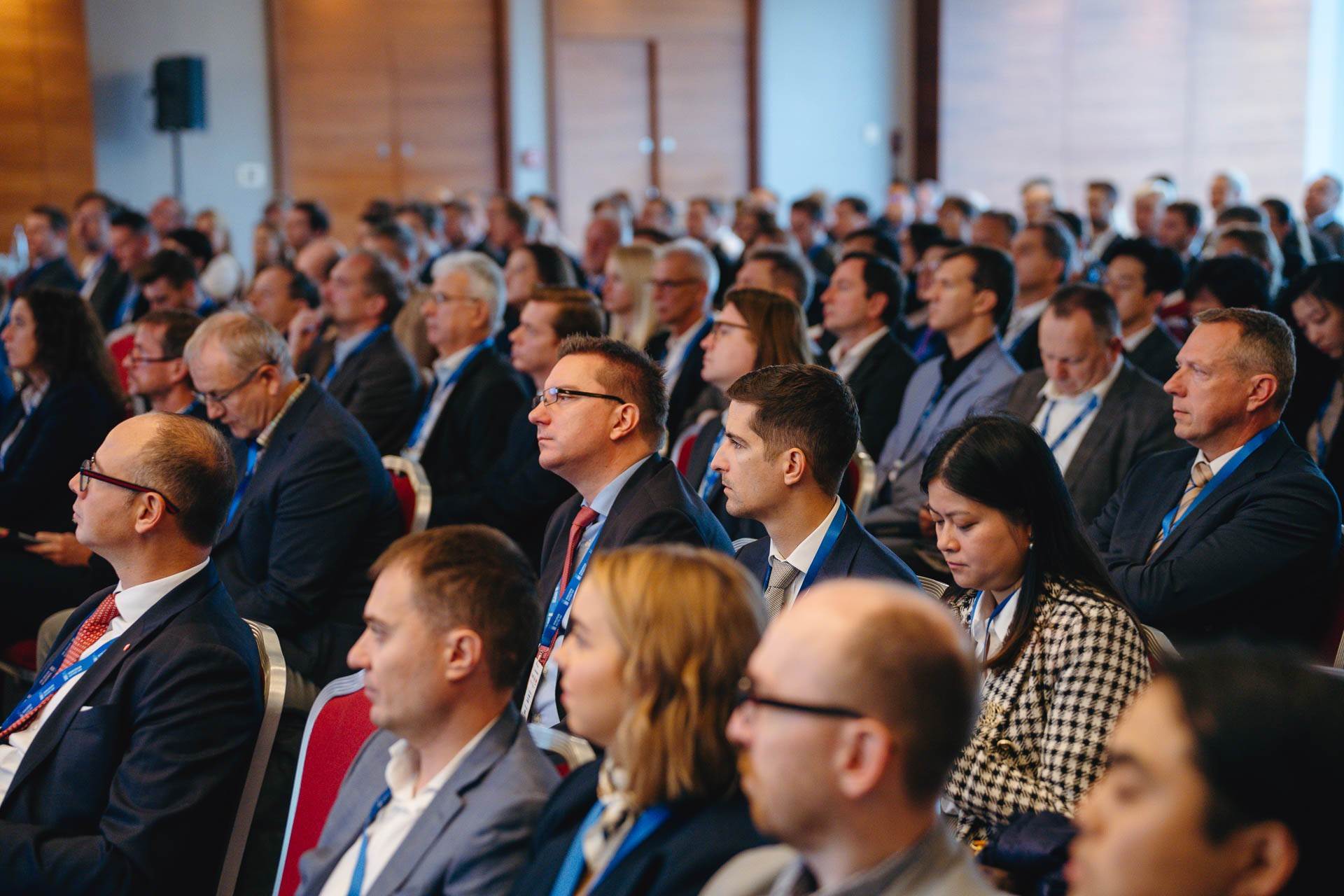
The Third Battery Day conference was a sell-out, attracting a large and attentive audience.
New Directives
Ákos Nagy, senior counsel at Kinstellar, reflected on the evolving European regulatory framework.
“The new directives will reverberate on a global scale, forcing the entire supply chain to scrutinize these regulations and their obligations. By the twilight of 2025, nearly 70% of lithium-based batteries will need to be recycled, a colossal obligation,” Nagy emphasized.
Bernadett Papp, who leads market analysis at Pact Capital, emphasized the indispensable role of batteries in the green transition, while Andrea d’Alessandro, head of international centers at UniCredit Bank Hungary, recognized the burgeoning battery industry as a significant opportunity and affirmed the bank’s enthusiasm and capabilities as a steadfast and enduring ally.
Tamás Bakos, regional general manager of CT Central South Europe, Atlas Copco, emphasized that vertical integration in battery production will require significant investment in R&D.
“Companies may find it more viable to continue working with specialized suppliers that can provide focused solutions, such as Atlas Copco’s compressed air, vacuum and nitrogen systems,” Bakos said.
Péter Vermes, general manager of Éltex, expressed pride in the ability of his 100% Hungarian-owned company to serve as the leading waste service provider for LIB manufacturers.
“Based on our more than 30 years of experience in waste management, we are confident that we will be able to meet the future legal and technical requirements of this emerging market segment and serve these manufacturers at the highest level,” said Vermes.
Péter Kaderják, managing director of the Hungarian Battery Association, emphasized that its goal is to promote the development of an environmentally conscious, socially responsible, high-tech battery industry with strong local entrepreneurial and R&D participation.
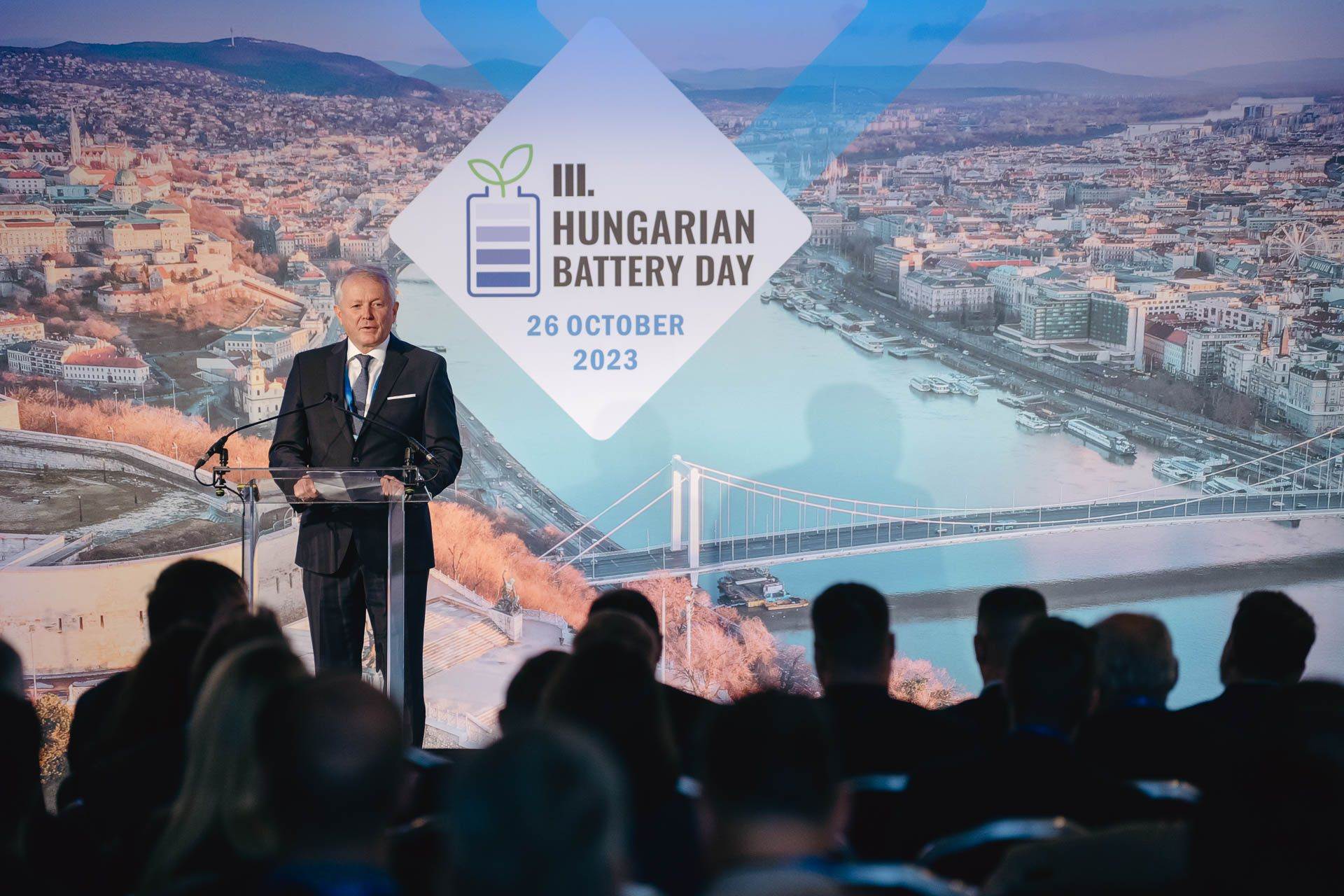
Péter Kaderják, managing director of the Hungarian Battery Association, addresses the conference. He has academic and decision-making experience in energy sector regulation and energy- and climate policy, is Head of the Zero Carbon Hub at the Budapest University of Technology and Economics, and an executive of the Hungarian Battery Alliance.
This article was first published in the Budapest Business Journal print issue of November 3, 2023.
SUPPORT THE BUDAPEST BUSINESS JOURNAL
Producing journalism that is worthy of the name is a costly business. For 27 years, the publishers, editors and reporters of the Budapest Business Journal have striven to bring you business news that works, information that you can trust, that is factual, accurate and presented without fear or favor.
Newspaper organizations across the globe have struggled to find a business model that allows them to continue to excel, without compromising their ability to perform. Most recently, some have experimented with the idea of involving their most important stakeholders, their readers.
We would like to offer that same opportunity to our readers. We would like to invite you to help us deliver the quality business journalism you require. Hit our Support the BBJ button and you can choose the how much and how often you send us your contributions.

